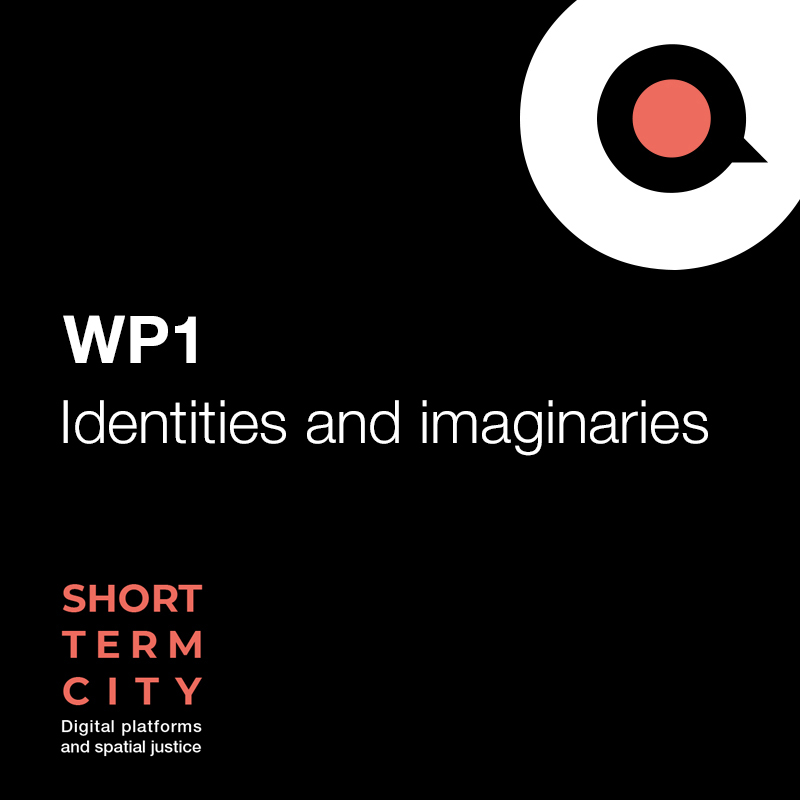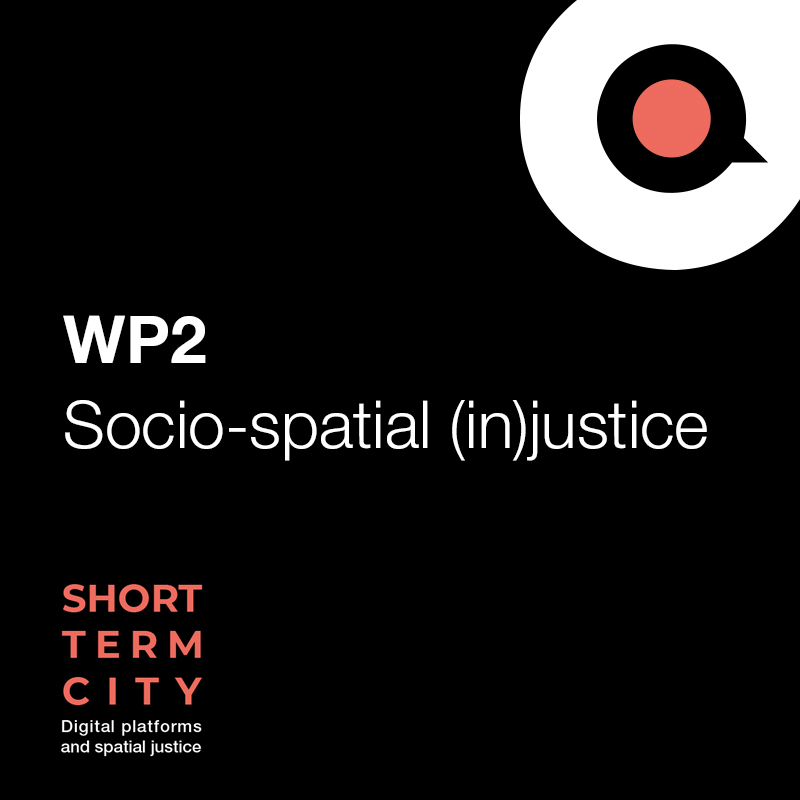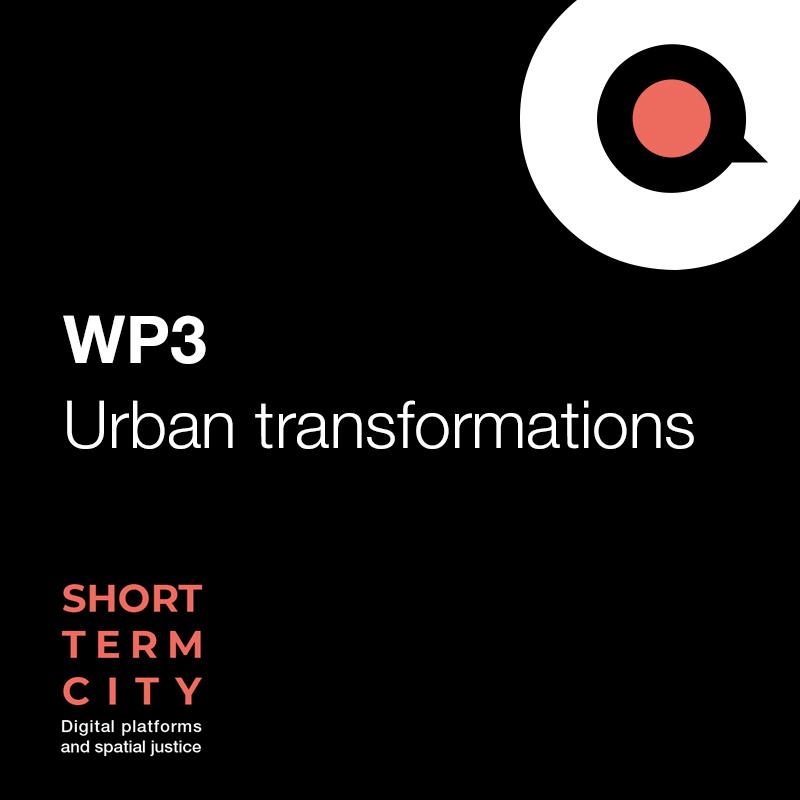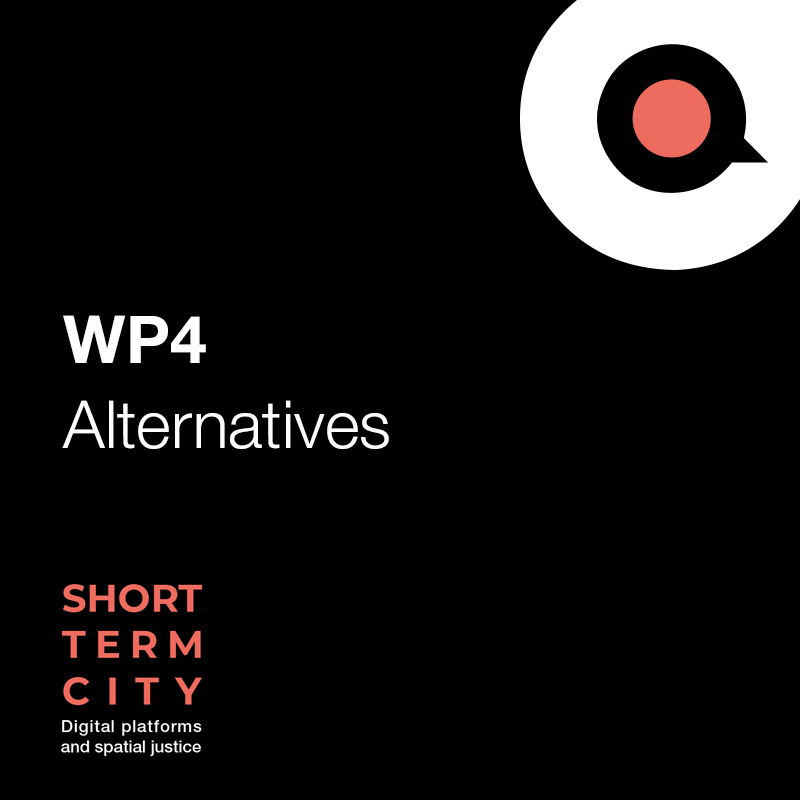Project > Action Plan
Action Plan


01
IDENTITIES AND IMAGINARIES
1.1. PLATFORM IMAGINARIES
Content and visual analysis of the (new) representations of places (cities, neighbourhoods, homes) channelled through digital platforms, how these appeal to authenticity and the experiential dimension of tourism, and the consequences in terms of spectacularization, museification, self-falsification.
1.2. PLATFORM MEDIATIONS
Analysis of the “politics” of algorithms and how the automatic/computational organization of tourism-related information mediates our relation with space and place, reproduces or alters existing spatial hierarchies, induces new regimes of visibility/invisibility, and creates “filter bubbles” (Pariser 2011).
1.3. PLATFORM IDENTITIES
Qualitative and ethnographic research on the biopolitics of digital platforms and digital reputation systems, how these impact users’ online/offline identities and practices, and the implications in terms of trust, self-branding and digital discrimination.
02
SOCIO-SPATIAL (IN)JUSTICE
2.1. SPATIAL HIERARCHIES
Meso-analysis and critical mapping of spatial patterns of “Airbnbification” and how digital platforms generally impact centre-periphery relations, with a specific focus on opportunities and threats to minor cities, rural areas, urban peripheries and other marginal/deprived places.
2.2. NEIGHBOURHOOD IMPACTS
Quantitative analysis of the impact of STR platforms on the housing market and urban property values at the urban and sub-urban scales, and of the consequences in terms of home tenure, displacement of permanent residents, gentrification and other neighbourhood effects.
2.3. EMPLOYMENT EFFECTS
Analysis of occupational profiles and biographies of Airbnb hosts, and of the employment effects in services complementary to the platform, with a specific focus on issues of self-employment and financialization/indebtedness.
2.4. INCOME INEQUALITIES
Macro-analysis of spatial and social distribution of Airbnb revenue, and overall effects in terms of personal income, urban rent, distributional and socio-spatial inequalities, with a specific focus on the middle class and urban elites, and in relation to home ownership and tenure.


03
URBAN TRANSFORMATIONS
3.1. LOGISTICIZATION OF CITIES
Analysis of the latest wave of logisticization of urban space and societal transformations at the urban level brought about by the acceleration of e-commerce, delivery and other platform-based economies, to explore the materiality of street-level urban changes within a context of platform capitalism and accelerated urbanism.
3.2. SHARED SPACES
Ethnographic analysis of encounters and conflicts between permanent and temporary residents (tourists and migrants) and changing socio-spatial stratification of buildings and neighbourhoods, including transitions from traditional, indigenous composition and vertical articulation of tenements, to more fluid and multi-cultural articulations and co-existences, and how different urban and architectural features prove more or less suitable to STR and global tourism.
3.3. BUILT ENVIRONMENT
Case study of how STR platforms induce physical and immaterial, formal and informal changes and adaptations of the built environment, socio-material transformations of housing stocks (e.g. alterations and subdivisions), unregulated development of interstitial, low market-value properties, new ‘home cultures’ and life-styles, and production of new forms of public space.
04
ALTERNATIVES
4.1 CONTESTATIONS
Qualitative/ethnographic analysis of anti- and pro-Airbnb associations and social movements, their constituencies, strategies and outcomes in select Italian and European cities, with a specific focus on tourismphobic or “tourismophilic” reactions.
4.2 REGULATION
Comparative analysis and assessment of traditional and experimental, and local and national, policy responses to challenges posed by STR and other platforms in terms of laws, policies, regulations, planning rules and standards, including more radical alternatives, such as platform cooperativism.
4.3 ALTERNATIVES
Policy recommendations aimed to contribute to the current conversation on ad-hoc regulations of digital platforms in Italy at the national, regional and municipal levels, based on research outputs.

